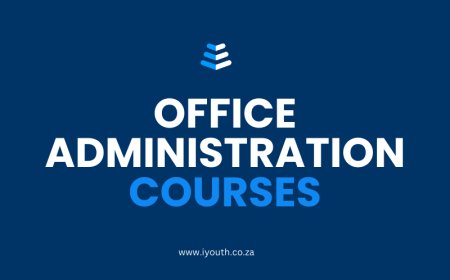13 Amazing Tips For First-Year University Students in South Africa
Excellent tips for first-year university students in South Africa to help them navigate life after matric at university without succumbing to pressure and fear.

13 Amazing Tips For First-Year University Students In South Africa
Being a first-year university student can be both an exciting and frightening experience as you are stepping into a whole new world.
As scary as it may seem, there are ways to make the most of your first year and get a hang of things.
We’ll be providing you with some top uni tips for you to implement in your first year at university.
If you’re still looking to apply for university for the 2025 academic year you can do so via our post here. Then check out these tips later to prepare yourself for the upcoming academic year.
1. Organize Your Schedule Wisely

Time management is crucial in balancing academic responsibilities and personal commitments.
Make use of a planner or digital calendar to schedule classes, study sessions, and extracurricular activities.
For example, allocate specific time slots for attending lectures, completing assignments, and participating in campus events to ensure a well-rounded university experience.
2. Connect with Classmates
Building a supportive network of peers improves your learning journey and fosters a sense of belonging within the university community.
Take the initiative to introduce yourself to fellow students in your classes and participate in group discussions or study groups.
Forming study buddies or joining student organizations allows you to collaborate, share resources, and navigate academic challenges together.
3. Balance Your Workload

Break down larger assignments or projects into manageable tasks and create a timeline with deadlines for each stage.
For instance, if you have a research paper due, set aside time each week for conducting research, drafting, and revising.
Balancing your workload prevents procrastination, reduces stress, and ensures that you meet academic deadlines effectively.
4. Seek Help When Needed
Don't hesitate to contact professors, teaching assistants, or academic advisors if you encounter academic problems or need guidance.
Universities offer support services such as tutoring centers, writing labs, and counseling resources to assist students in overcoming challenges and achieving their academic goals.
Seeking help early on demonstrates initiative and proactive problem-solving skills.
5. Take Care of Yourself

Prioritize self-care to maintain your physical, mental, and emotional well-being throughout your university journey.
Get an adequate amount of sleep, engage in regular exercise, and nourish your body with healthy meals.
Practicing self-care techniques such as relaxation exercises, or seeking support from campus health services promotes resilience and academic success.
6. Get Involved on Campus
Explore different extracurricular activities, clubs, and student organizations available on campus.
Whether it's joining a sports team, volunteering for community service projects, or participating in cultural events.
Getting involved improves your university experience and allows you to develop leadership skills, expand your social network, and pursue your passions outside of academics.
7. Budget Wisely

Manage your finances responsibly by creating a budget that accounts for tuition fees, textbooks, accommodation, food, and recreational activities.
Look for opportunities to save money, such as purchasing second-hand textbooks, cooking meals at res, or taking advantage of student discounts.
Developing sound financial habits early on sets a foundation for financial stability and independence in the future.
8. Utilize Student Support Services
Familiarize yourself with student support services available on campus, including academic advising, career counseling, mental health resources, and disability support services.
If you need assistance with choosing your courses, resume building, stress management, or accommodation arrangements.
These services are designed to support your overall well-being and academic success.
9. Explore New Opportunities

Embrace the various academic, career, and personal growth opportunities available at your university.
It can be participating in research projects, internships, study abroad programs, or entrepreneurial ventures.
Seizing opportunities expands your horizons, builds skills, and betters your employability in the competitive job market.
10. Manage Your Time Effectively
Develop a structured study routine that allocates dedicated time for attending classes, studying, and engaging in extracurricular activities.
Use time management techniques to prioritize tasks and maximize productivity.
Avoid procrastination by setting realistic goals and breaking tasks into manageable chunks.
11. Network Professionally

Build professional relationships with peers, faculty members, and industry professionals within your field of study.
Attend networking events, career fairs, and industry conferences to expand your professional network, explore career opportunities, and gain insights into your chosen field.
Networking opens doors to internships, job placements, and mentorship opportunities that can shape your future career.
12. Practice Digital Literacy
In today's digital age, being tech-savvy and having digital literacy skills are essential for academic and professional success.
Take advantage of workshops, tutorials, and online resources offered by your university to improve your digital literacy skills, including research skills, information literacy, digital communication, and online collaboration.
Developing these skills will make it easy for you to navigate the digital world effectively and adapt to evolving technological trends in your academic and professional industries.
13. Reflect and Adapt

Regularly reflect on your academic progress, personal goals, and learning strategies to identify areas for improvement and growth.
Assess your strengths, weaknesses, and areas of interest to make informed decisions about your academic and career pathways.
Be open to feedback, adapt to changing circumstances, and embrace a growth mindset as you navigate the dynamic world of university life.
Conclusion
Your first year at university can be a walk in the park or a complete disaster. It’s all about getting your things in order and embracing the new change.
Be sure to use our uni tips for first years to get the most out of your first year at your chosen institution.
What's Your Reaction?
































![50 Online Side Hustles for Every South African [PDF Free Download]](https://iyouth.co.za/uploads/images/202503/image_430x256_67e43f9e05585.jpg)

















